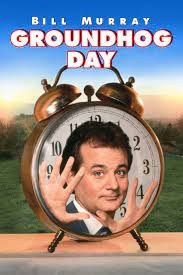VUCA Defined
In their 1985 book “Leaders -The Strategies for Taking Charge,” economists Warren Bennis and Burt Nanus coined the term VUCA (Volatility, Uncertainty, Complexity, and Ambiguity). In the 1990s, VUCA was used as a US War College framework to guide scenario planning related to post-Cold War military tactics.
VUCA – a Model for 21st-Century Leadership
At the turn of the 21st century, VUCA gained traction in academic research and publications like the Harvard Business Review. Mainstream business leaders began using the VUCA framework rapidly in the context of global COVID-19 shutdowns and subsequent supply chain disruptions, tight labor markets, and civil/political unrest.
Stronger Through Adversity
Leveraging my background as a systems psychologist, I have been working with leaders on organizational resilience long before the pandemic. Much of that work is reflected in my book:
In this post and three others that follow, we will explore ways to respond (individually and collectively) to each VUCA element. This installment focuses exclusively on managing Volatility.
Coping w/ VUCA 101 – Volatility
Volatility is best described as rapid and unpredictable change. Contrary to popular belief, individuals and organizations do crave change.
The movie Groundhog Day demonstrates how miserable we would be if nothing changed day-to-day. While change is welcomed, we want it on our terms, in ways we can predict, and at a manageable pace.
Unfortunately, a global and digitally interconnected economy magnifies the speed and unpredictability of change. So, how do individuals and businesses thrive in a Volatile world? The short answer is to develop “learning agility.”
Learning agility is an individual and business competency, defined by researchers David Hoff and Warner Burke as:
dealing with new experiences flexibly & rapidly by trying new behavior, getting feedback on those attempts & making quick adjustments so new learning occurs when you do not know exactly what to do.
Learning Agility Skills
Here are 9 skills that will increase your success in a Volatile world:
- Speed – Make swift decisions when you have sufficient information. Don’t wait for “ideal” data if it will lead to slow responses.
- Flexibility – Shift “cognitive sets” and break “paradigms” that don’t apply to your current situation.
- Experimenting – Learn “agile” design techniques and deploy a “test and learn” approach.
- Performance risk-taking – Put yourself in situations “outside your comfort zone” and volunteer for assignments that will lead to new skill development.
- Interpersonal risk-taking – Be more vulnerable and transparent with others. Admit mistakes and learn from shortcomings.
- Collaborating – Ask for help and respond to others when they seek your assistance. Master skills needed to be a respected team player.
- Information gathering – Use multiple methods to acquire actionable knowledge and develop expertise.
- Feedback seeking – Seek feedback from supervisors, peers, subordinates, customers, and vendors. Use that feedback to anticipate and respond to volatility.
- Reflecting – Reflect on what you learned from navigating the last volatile situation. Use that learning to ready yourself for the next unexpected change.
The Payoff of Learning Agility
According to research conducted by Korn Ferry, highly learning agile individuals are “18 times more likely to be identified as high-potential employees than their colleagues with lower learning agility scores.”
Additionally, “companies with the greatest number of highly learning agile executives produce 25% higher profit margins compared with peer companies.”
Here’s to managing the V in VUCA – so you and your organization will emerge Stronger Through Adversity. Look for next week’s installment to address the U – Uncertainty.
To learn more about ways to emerge stronger when faced with Volatilty, please contact me at josephmichelli.com/contact.




![[Research Round-Up] New Study Shows the Continuing Value of B2B Thought Leadership](https://customerthink.com/wp-content/uploads/development-2010010_1280-pixabay-innovation-ideas-think-1-218x150.jpg)